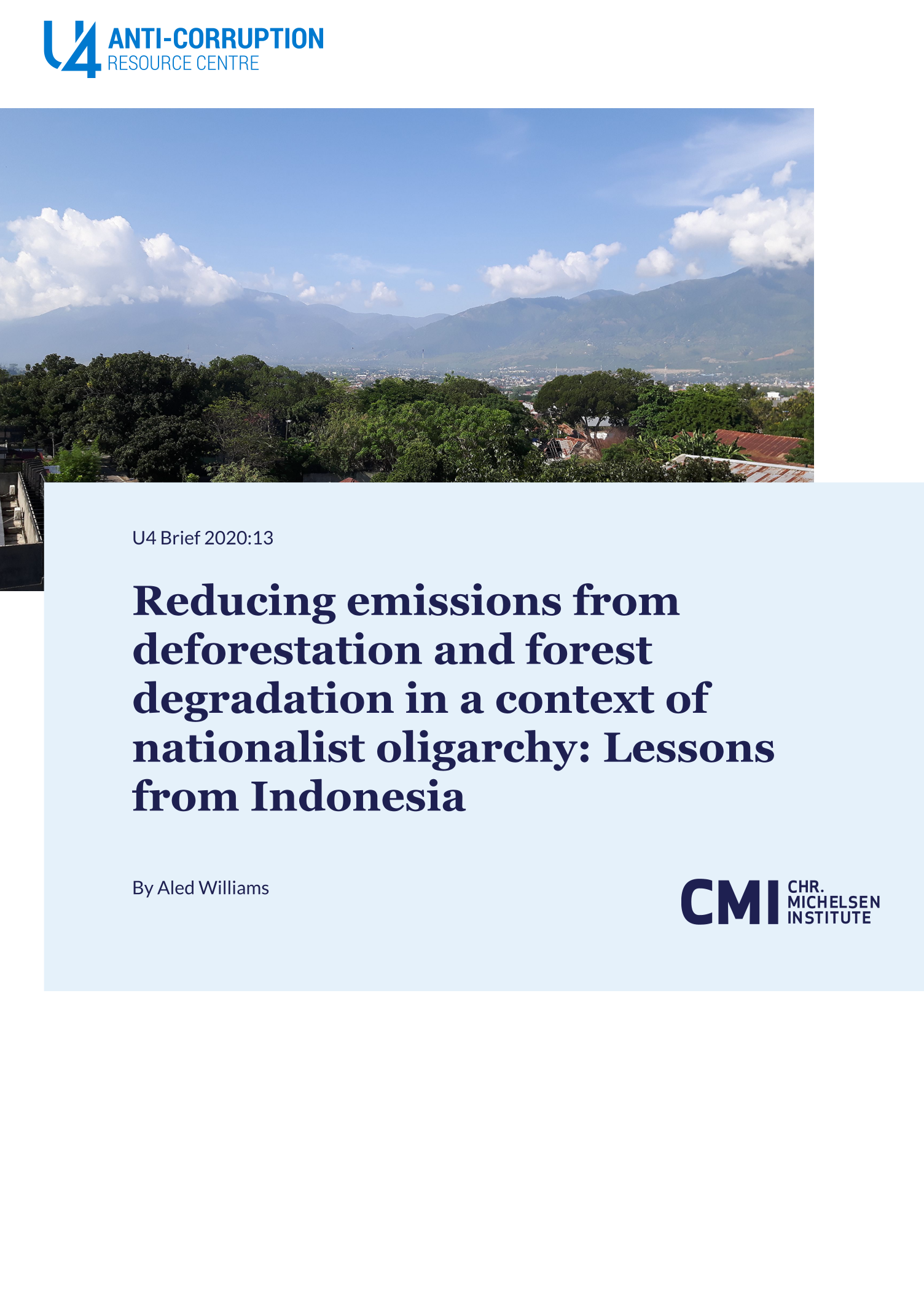Main points
- Competitive post-Reformasi oligarchic interests in natural resource extraction are central in explaining REDD+ performance in Indonesia to date.
- Resistance from the national forest bureaucracy and from subnational governments led to the 2015 disbanding of the National REDD+ Agency – a multi-stakeholder body established to bypass the then Ministry of Forestry due to concerns about corruption.
- Deforestation of primary forests in Indonesia has declined since 2017, but CO2 emissions from peat-soil decomposition and burning are not included in the results-based payment protocol for REDD+. The resulting figures may be an underestimation of Indonesia’s overall forest-related carbon emissions, depending on the time period.
- Satellite data reveals no decisive impact on reducing deforestation and forest degradation from pilot projects in Central Sulawesi, with other studies of REDD+ pilots elsewhere in Indonesia showing similar results.
- Despite past successes in prosecuting high-level forest corruption offenders, new legislation in 2019 has reduced the authority and investigative powers of Indonesia’s Corruption Eradication Commission (KPK). There is a broad consensus among analysts that past prosecutions have not significantly diminished Indonesia’s forest sector corruption.
- The imbalance between the incentives offered by REDD+ and economic rents from land conversion (often facilitated by corruption) have dampened the potential of REDD+ to slow Indonesia’s primary deforestation rate.
- Practitioners in bilateral development agencies working on anti-deforestation initiatives should focus on ways to: (i) improve planning for reform backlash, (ii) challenge governance deteriorations when they occur, and (iii) prioritise work on complementary democratic governance reforms.



